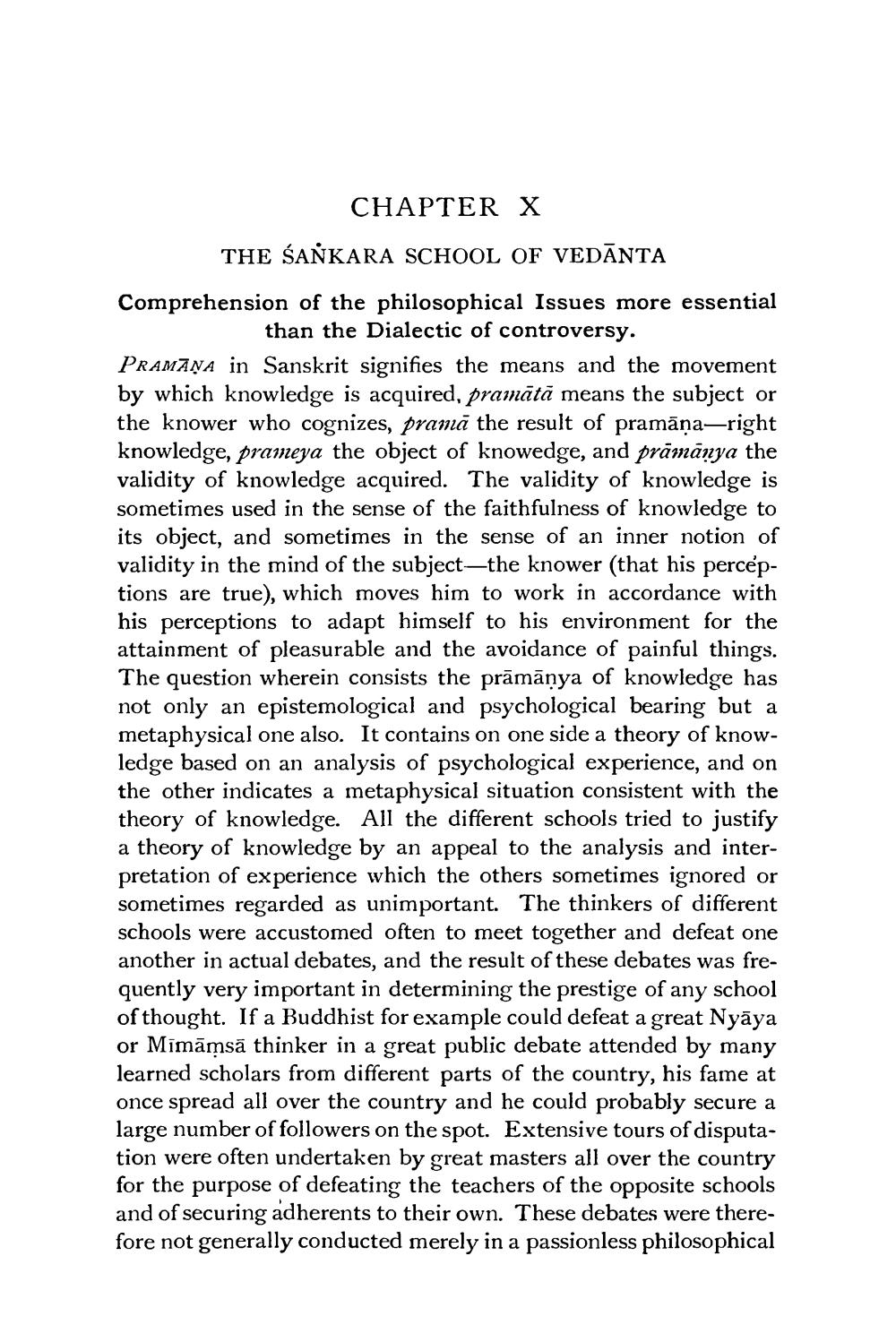________________
CHAPTER X
THE SANKARA SCHOOL OF VEDĀNTA Comprehension of the philosophical Issues more essential
than the Dialectic of controversy. PRAMĀŅA in Sanskrit signifies the means and the movement by which knowledge is acquired, pramātā means the subject or the knower who cognizes, pramā the result of pramāna—right knowledge, prameya the object of knowedge, and prāmānya the validity of knowledge acquired. The validity of knowledge is sometimes used in the sense of the faithfulness of knowledge to its object, and sometimes in the sense of an inner notion of validity in the mind of the subject—the knower (that his perceptions are true), which moves him to work in accordance with his perceptions to adapt himself to his environment for the attainment of pleasurable and the avoidance of painful things. The question wherein consists the prāmānya of knowledge has not only an epistemological and psychological bearing but a metaphysical one also. It contains on one side a theory of knowledge based on an analysis of psychological experience, and on the other indicates a metaphysical situation consistent with the theory of knowledge. All the different schools tried to justify a theory of knowledge by an appeal to the analysis and interpretation of experience which the others sometimes ignored or sometimes regarded as unimportant. The thinkers of different schools were accustomed often to meet together and defeat one another in actual debates, and the result of these debates was frequently very important in determining the prestige of any school of thought. If a Buddhist for example could defeat a great Nyāya or Mimāmsā thinker in a great public debate attended by many learned scholars from different parts of the country, his fame at once spread all over the country and he could probably secure a large number of followers on the spot. Extensive tours of disputation were often undertaken by great masters all over the country for the purpose of defeating the teachers of the opposite schools and of securing adherents to their own. These debates were therefore not generally conducted merely in a passionless philosophical




